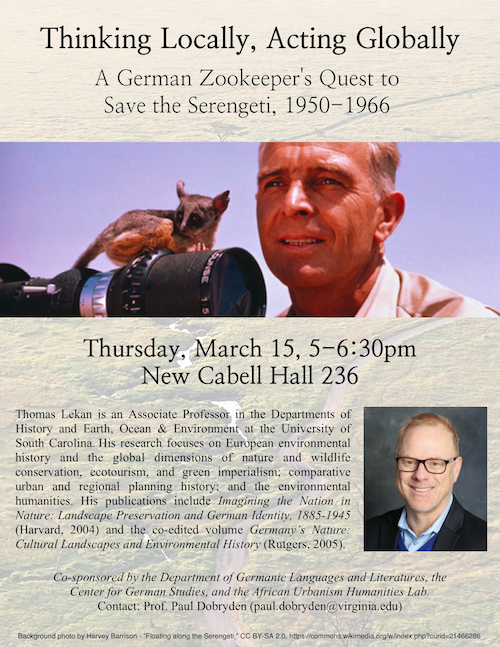
Thomas Lekan is an Associate Professor in the Departments of History and Earth, Ocean & Environment at the University of South Carolina.
Prof. Lekan's talk investigates the cultural blind spots and unintended ecological consequences of German wildlife conservation in East Africa after World War II. His focus is the work of Frankfurt Zoo director and documentarian Bernhard Grzimek, whose Academy Award-winning film Serengeti Shall Not Die featured some of the first aerial surveys of wild animal populations and their habitat in what was then known as Tanganyika. He argues that the film uses aerial filmography—which was heralded already in the 1950s as a pathway to global environmental consciousness—to “rewild” cultural landscapes once shaped by German colonialism and home to African pastoralists and farmers. Such rewilding offered West Germans just emerging from Allied control new symbolic resources for environmentally reimagining their homeland, yet denied the possibility of full environmental sovereignty to Africans on the brink of decolonization. Grzimek’s Serengeti film thus exemplifies the dangers of “thinking locally, acting globally”—formulating scientific and moral claims about Nature from a situated space of knowledge, power, and material relations and then universalizing them across diverse places of encounter.
Co-sponsored by the Department of Germanic Languages and Literatures, the Center for German Studies, and the African Urbanism Humanities Lab.
Contact: Prof. Paul Dobryden (paul.dobryden@virginia.edu)